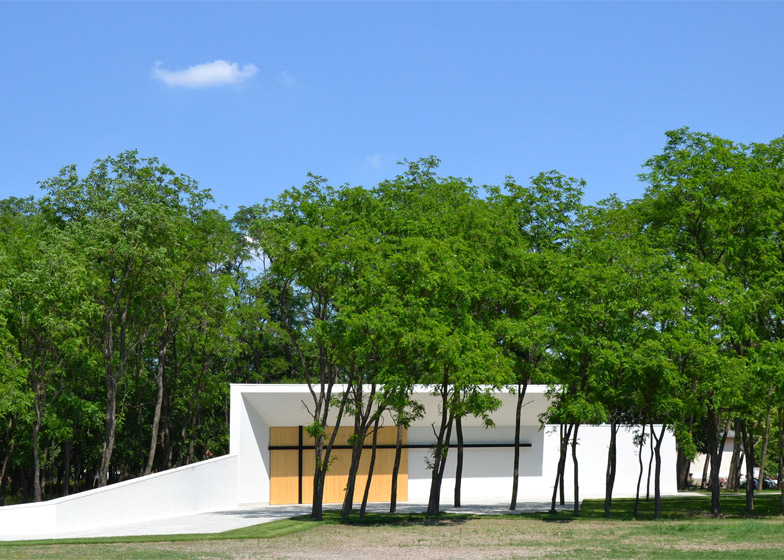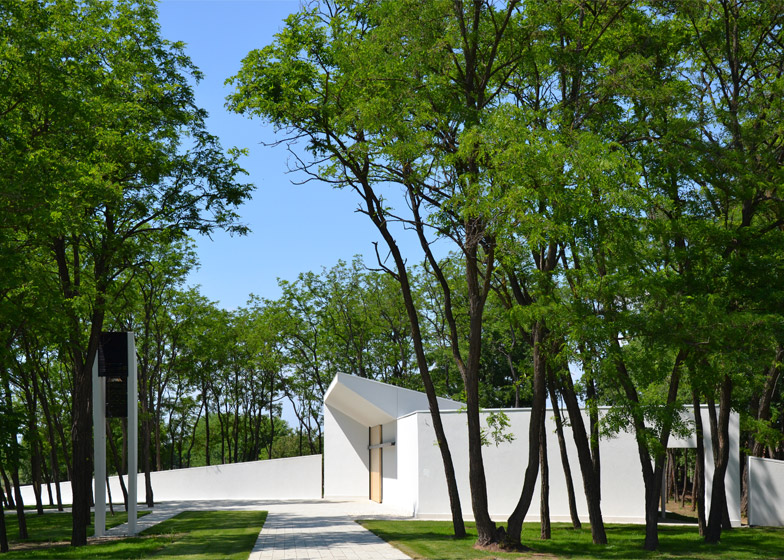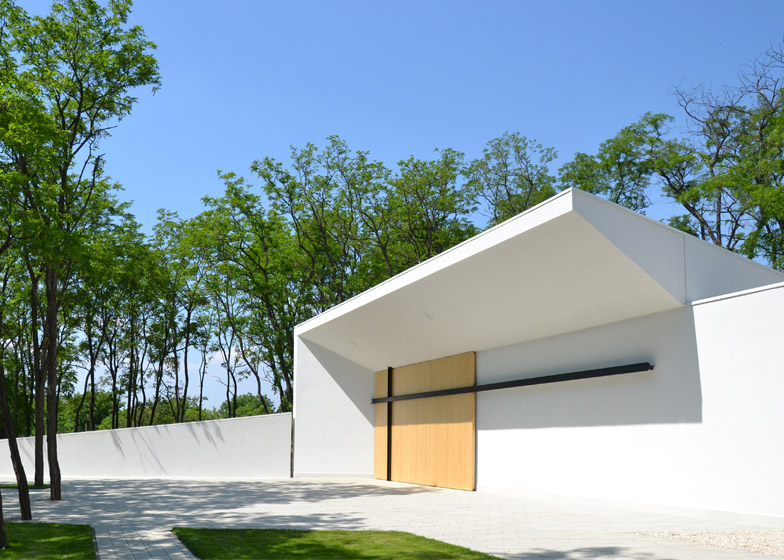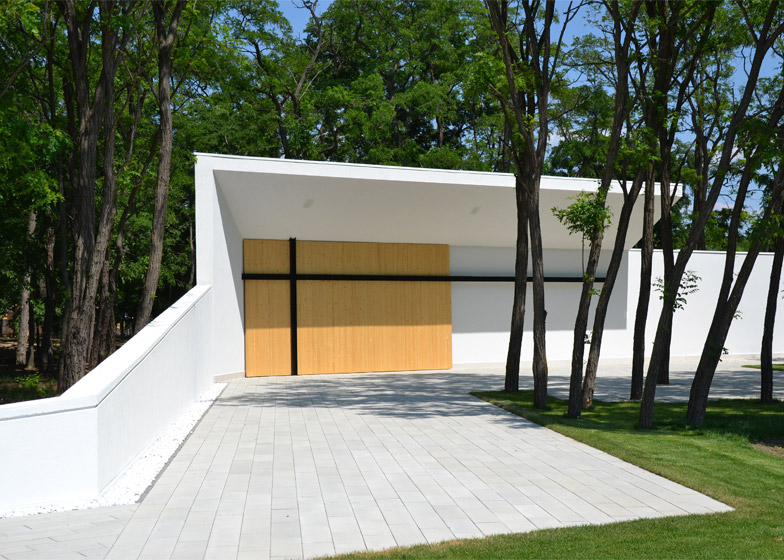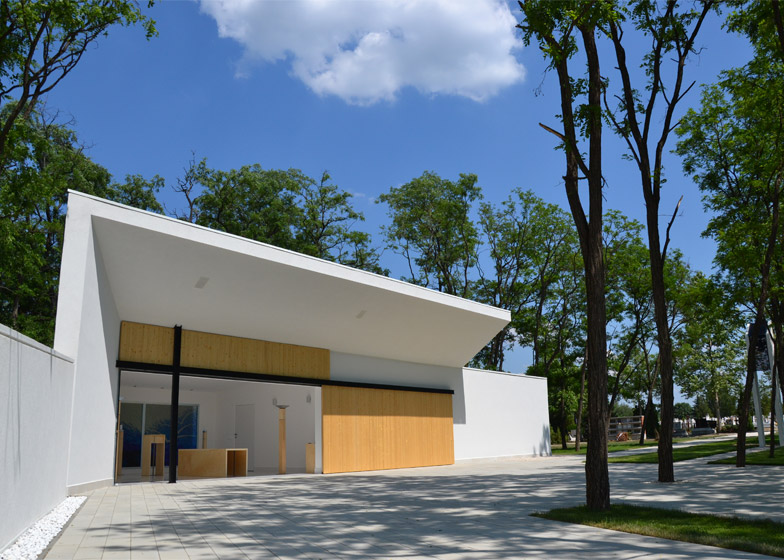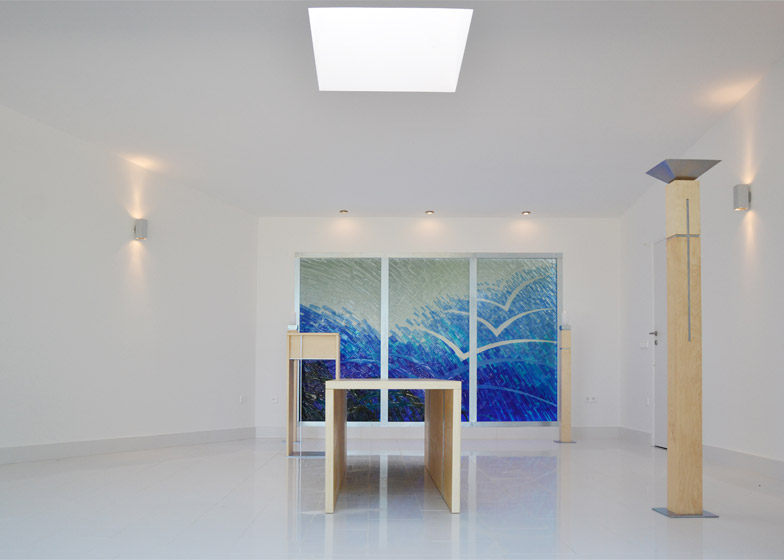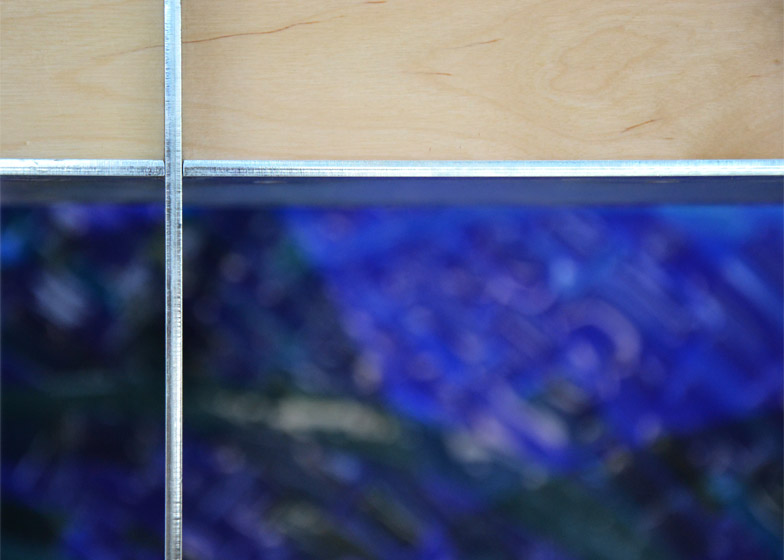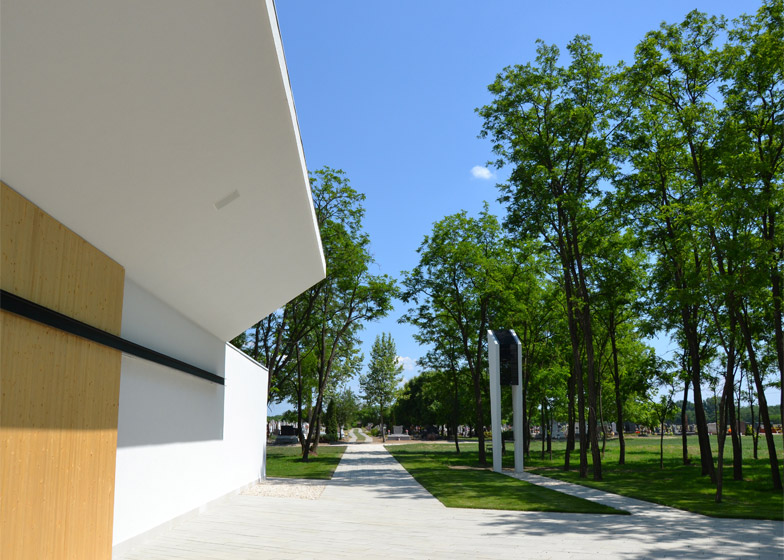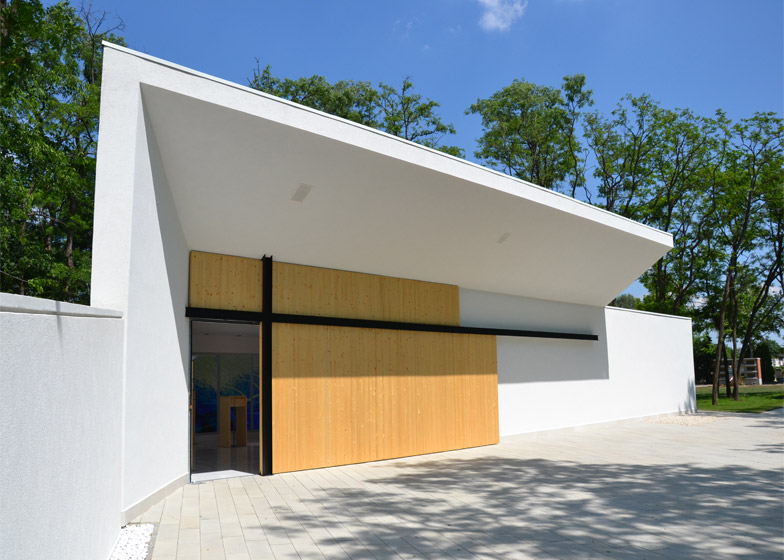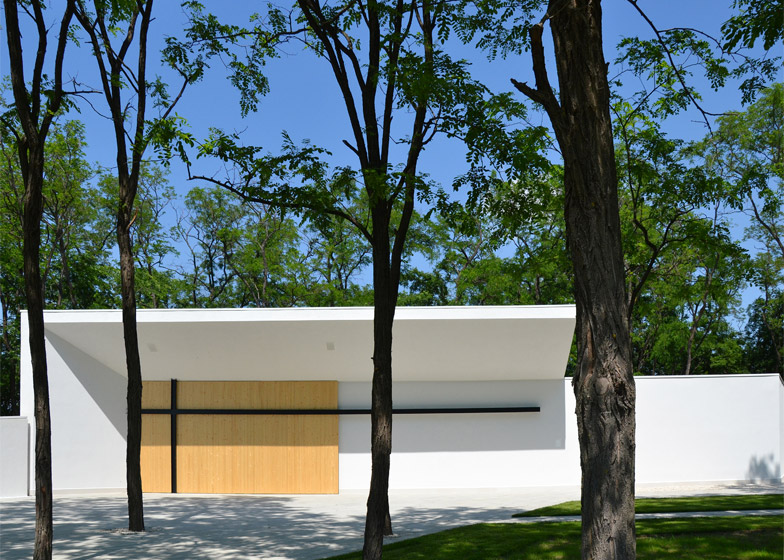A cross made from two steel I-beams frames the entrance to this bright white funeral chapel in Hungary, by local firm L.Art Architectural Office (+ slideshow).
Surrounded by trees, the small chapel stands at the entrance to a cemetery in Dabas, a town south of Budapest. It comprises a single-storey concrete structure with a sheltered entrance and a simple bell tower.
L.Art Architectural Office developed its design around a desire to include various spiritual and biblical references and metaphors in the form of the building.
"We believe that architectural aims are nothing but messages of a modern era – a metaphor about the relationship between today's people to their earthly lives," explained the architects.
"We aim to represent urban morphology in terms of used material and others," they added.
The most prominent of these is the large entrance – a steel cross that provides the supporting framework for a wooden door.
When closed, the door could be mistaken for a static panel, but it slides open to create either a standard-sized doorway or a more generous opening.
"By pulling away the sliding partition, the inside and outside becomes one, and everybody becomes involved in the ceremony," said the architects.
They also added a long tapered wall that leads up to the building's entrance, and another that extends back into the woodland. These are intended to represent the journey from birth to death.
The bell tower stands separate from the building but features the same white-rendered concrete structure. Like the wall, it tapers outwards at the top to create enough space for the bell.
Inside, the first room of the 128-square-metre chapel centres around the catafalque – the wooden stand where the coffin is placed during a funeral service. A skylight overhead directs light down onto it.
A stained glass wall at the back of the space presents an abstracted image of birds in flight.
Related content: see more chapels
There are also three other wooden elements – a lectern and two candle stands.
"[It is] a transitional place," said the architects. "Up front it is the earthly life, and the inner part of the building is where the last journey starts. The transparent spirit bird on the blue glass triptych symbolises the other side."
"The light shines in from above and the rays of it that hit the catafalque," they added. "They symbolise the creator, who is present here."
A doorway leads through from this space to a second hall, which opens out to the landscape at the rear. The rest of the building accommodates toilets and ancillary spaces.
Other funeral buildings completed recently include a timber-framed chapel in Slovenia's picturesque Tuhinj Valley and a red brick crematorium in Stockholm's historic Woodland Cemetery.
Photography is by Dorothy Sara Ligetvári.
Project credits:
Senior architectural designer: István Ligetvári
Co-architectural designer: Zoltán Kovács
Architectural design of the belfry: Dorottya Sára Ligetvári
Architectural design of the glass triptych: Eleonóra Balogh
Collaborators:
Csaba Kántor, Dániel Timmer
Furniture design: István Ligervári, Zoltán Kovács

